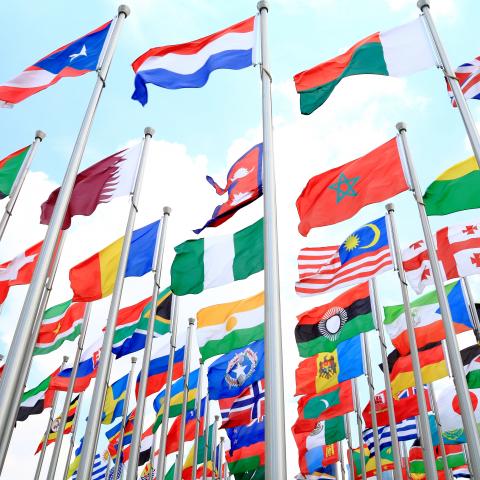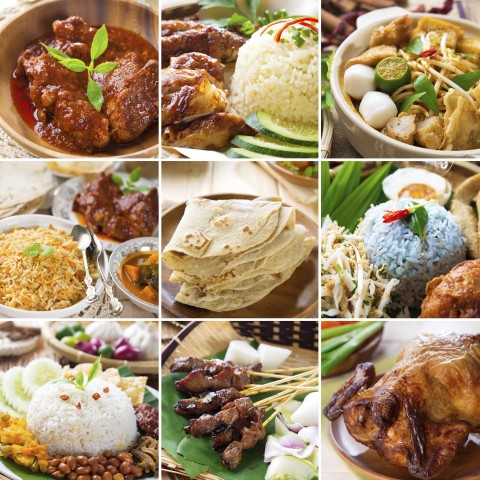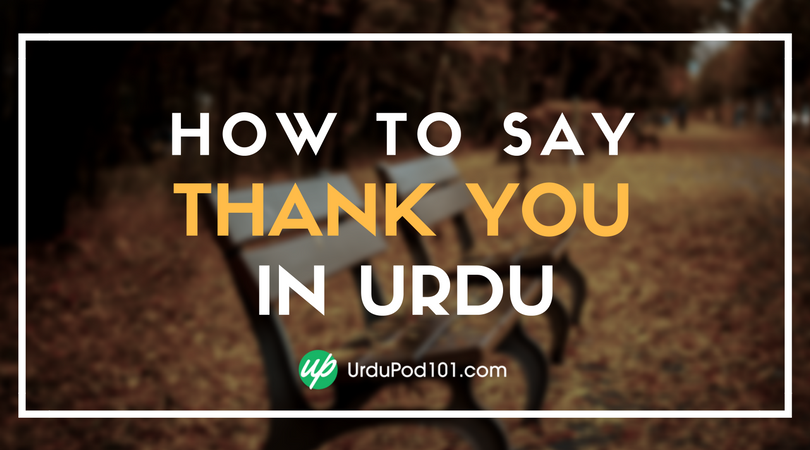
“To be or not to be, that is the question.”
Prince Hamlet’s famous question not only immortalized his theatrical character, but also eternalized the dialogic brilliance of Shakespeare in the world of English drama. This question further elevates the character of Hamlet when you consider the proposal rightly put forward by Voltaire: “Judge a man by his questions rather than by his answers.”
In this article, you’ll learn the most common questions and answers in Urdu. For asking questions and understanding the answers you receive is a vital element of communication. This knowledge will help eliminate ignorance, increase your understanding, and strengthen your bonds with others.

With this in mind, muscle up and learn how to ask smart and simple questions in Urdu, and become far more comfortable talking with native Urdu speakers. Never underestimate the significance of asking the right question at the right place in Urdu, for it may open multiple avenues of conversation and help you achieve your goals.
UrduPod101.com seeks to make your learning experience both painless and effective! So let’s go ahead and unearth the most common questions and answers in Urdu, both simple and more complex.
 Table of Contents
Table of Contents
1. Urdu Question Words
First, let’s familiarize you with Urdu questioning words—also called interrogative words—so that you can more aptly ask questions in a variety of situations.
- کیا (kya) – “what”
- کیوں (kyun) – “why”
- کب (kab) – “when”
- کہاں (kahan) – “where”
- کیسے (kaisay) – “how”
- کتنا/کتنی (kitna/kitni) – “how much”/”how many”
Having learned these basic question words in Urdu, it’s time to learn how to use these words in different real-life situations. We’ll introduce you to certain fundamental patterns of questions in Urdu, so that you’ll be able to improvise and tailor them according to the context.
2. Digging for Personal Information
In Pakistani society, it’s generally best not to ask very private questions during your first conversation with someone. Therefore, we’ll start with some logical questions and answers in Urdu that you can use or expect to hear while first getting to know someone.

1. How to Ask Someone’s Name in Urdu
The most general questions and answers in Urdu are those used to ask for someone’s name (or give your own).
a) Formal
If you’re meeting someone in an official environment, it’s recommended that you use the formal format to ask for that person’s name.
آپ کا نام کیا ہے؟
aap ka naam kya hai?
“What is your name?”
b) Literary
If you find someone who has a deep understanding of Urdu, you can always surprise him or her by adding a literary touch to your question.
آپ کا اسم گرامی کیا ہے؟
aap ka ism-e-girami kya hai?
“What is your name?”
c) Casual
If you’re in a more casual or informal situation, you can ask the question this way:
تمھارا نام کیا ہے؟
tumhara naam kya hai?
“What is your name?”
Answer
Now, here’s the most common answer pattern you can expect to hear in reply:
میرا نام عمران ہے
mera naam Imran hai.
“My name is Imran.”
- → Learn more about how to ask for someone’s name, how to give your own, and other essential introductory phrases on UrduPod101.com!
2. How to Ask Someone’s Age in Urdu
In this section of the article, we’ll let you know how to ask someone’s age in Urdu. You’ll find both formal and casual ways of asking the question in the Urdu language, so you can utilize them according to your needs.
a) Formal
آپ کی عمر کیا ہے؟
aap ki umr kya hai?
“What is your age?”
آپ کتنے سال کے ہو؟
aap kitnay saal kay ho?
“How old are you?”
b) Casual
تمھاری عمر کیا ہے؟
tumhari umr kya hai?
“What is your age?”
In response to this question, you’ll usually get the following answer. Don’t forget that you can use the same pattern to answer the question yourself.
Answer
میری عمر پانچ سال ہے
meri umr paanch saal hai.
“I am five years old.”
3. Asking About Someone’s Family

If you’ve gotten someone to feel comfortable talking with you, you can always take the liberty of asking about his family.
a) Formal
آپ کے کتنے بہن بھائی ہیں؟
aap kay kitnay behan bhai hain?
“How many siblings do you have?”
b) Casual
تمھارے کتنے بہن بھائی ہیں؟
tumharay kitnay behan bhai hain?
“How many siblings do you have?”
Following is a possible answer to this question in Urdu.
Answer
میرے دو بھائی اور ایک بہن ہے
meray do bhai aur ek behan hai.
“I have two brothers and a sister.”
- → Do you need more family vocabulary? UrduPod101.com has you covered with our free Family vocabulary list.
4. Asking Where Someone’s From
The following questions and answers in Urdu come up very often when natives speak with foreigners in Pakistan, so they’re certainly worth learning.

a) Formal
آپ کہاں سے ہیں؟
aap kahan say hain?
“Where are you from?”
b) Casual
تم کہاں سے ہو؟
tum kahan say ho?
“Where are you from?”
The following pattern is the most common way to answer this question. Simply insert your own nationality into the given pattern.
Answer
میں جاپانی ہوں
mei japani hun.
“I am Japanese.”
Using this next question, you can inquire about someone’s country of origin specifically. This question is interchangeable with the one above.
Question
آپ کون سے ملک سے ہیں؟
aap kon say mulk say hain?
“What country are you from?”
Answer
میں پاکستان سے ہوں
mei Pakistan say hun.
“I am from Pakistan.”
- → Here’s a free vocabulary list of nationalities in Urdu!

5. Asking About Languages in Urdu
As a foreigner in Pakistan, you can rest easy in the knowledge that native Pakistanis will give you due respect and space. Enjoy your foreigner status, and bring an awe factor into your communication with your Urdu skills. This will make your communication effective and strengthen your bond with natives.
Here are some examples of how you can ask someone in Urdu about his competence in a particular language.
Question
کیا آپ جاپانی بولتے ہیں؟
kya aap japani boltay hain?
“Do you speak Japanese?”
Answer
Here’s how you could answer if you have limited knowledge of the given language.
جی میں تھوڑی بہت جاپانی بول لیتا ہوں
ji mei thori bohat japani bol leta hun.
“Yes, I can speak a little Japanese.”
Question
You can use this question to ask about how long someone has been studying a certain language.
آپ کتنی دیر سے جاپانی پڑھ رہے ہیں؟
aap kitni dair say japani parh rahay hain?
“For how long have you been studying Japanese?”
Answer
Here’s a brief and apt answer to the question above.
میں نے جاپانی دو سال پڑھی ہے
mei nay japani do saal parhi hai.
“I have studied Japanese for two years.”
6. Questions About Travel
As a traveler in Pakistan, you should always be ready to encounter the following questions in Urdu. People take pleasure in listening to the accounts of others’ travels, making it a good topic for spending quality time with someone.
Question
کیا آپ ٹوکیو گئے ہیں؟
kya aap Tokyo gaye hain?
“Have you been to Tokyo?”
Answer
جی ہاں، میں ٹوکیو جا چکا ہوں۔
ji han, mei Tokyo ja chuka hun.
“Yes, I have been to Tokyo.”
7. Asking About Someone’s Profession
If you’re able to indulge a Pakistani Urdu-speaker for a reasonable amount of time, expect a question about your job or profession at some point in the conversation. Pakistanis love to share their professional details and experiences with others.
Question
آپ کا پیشہ کیا ہے؟
aap ka paysha kya hai?
“What is your profession?”
Answer
Here’s the answer pattern you can use in reply. Just replace “doctor” with your own profession.
میں ڈاکٹر ہوں۔
mei doctor hun.
“I am a doctor.”
- → Check out our Jobs / Work vocabulary list and find your profession so you can answer the question!
8. Asking About Someone’s Preferences & Well-Being
If you’ve made it to this point in your conversation, give yourself a pat on the back. You’ve clearly made way with your strong Urdu skills and made a good impression on your interlocutor. Following are the best questions and answers in the Urdu language to keep the conversation going.
Question
آپ کو جاپان کیسا لگا؟
aap ko Japan kaisa laga?
“How do you find Japan?”
Answer
مجھے جاپان بہت اچھا لگا
mujhe Japan bohat acha laga.
“I like Japan very much.”
Question
Cultural cuisine is another favorite topic among foreign visitors and travelers. Inquire about someone’s food preferences as follows.
کیا آپ کو پاکستانی کھانے پسند ہیں؟
kya aap ko Pakistani khanay pasand hain?
“Do you like Pakistani cuisine?”

Answer
Appreciating local cuisine is always appreciated!
جی ہاں، مجھے پاکستانی کھانے بہت پسند ہیں
ji han, mujhe Pakistani khanay bohat pasand hain.
“I like Pakistani cuisine very much.”
9. Asking About Someone’s Studies
If you and your interlocutor have gotten truly comfortable talking with each other, it may be a good time to talk about each other’s hobbies, personal interests, or studies. The question below will focus specifically on one’s studies.
Question
آپ کیا پڑھ رہے ہیں؟
aap kya parh rahay hain?
“What are you studying?”
Answer
میں انگریزی ادب میں ماسٹرز کر رہا ہوں
mei angrezi adab mei masters kar raha hun.
“I am doing my Master’s in English literature.”

10. Asking About Someone’s Problems in Urdu
Showing concern for someone will help you win the attention and empathy of Pakistanis. People share their problems only with those who are able to show sympathy or empathy toward them.
Question
First, here’s how you can ask about someone’s health.
آپ کی صحت کے ساتھ کیا مسئلہ ہے؟
aap ki sehat kay sath kya masla hai?
“What’s wrong with your health?”
Answer
میں بالکل ٹھیک ہوں
mei bilkul theek hun.
“I am perfectly alright.”
Question
Here’s how you can ask about someone’s general well-being.
آپ کی زندگی کیسی گذر رہی ہے؟
aap kis zindagi kaisi guzar rahi hai?
“How is your life going on?”
Answer
میری زندگی بہت اچھی گذر رہی ہے
meri zindagi bohat achi guzar rahi hai.
“My life is going on very well.”
11. Asking for the Cost of Something
While traveling in Pakistan, you’ll find yourself needing to ask about the price of something. Here’s an easy way to do that.
Question
اس کی قیمت کیا ہے؟
iss ki qeemat kya hai?
“How much is it?”

Answer
یہ سو روپے کا ہے
yeh so rupay ka hai.
“It costs a hundred rupees.”
12. Conclusion
By now, you should know how to ask different questions in the Urdu language, and how to understand the answers you’re likely to be given. Asking questions in Urdu conversations should be much simpler for you now than it was before you read this article!
If there’s anything we didn’t cover in this article, or if you want more information on something we did cover, leave us a comment and we’ll do our best to help!
In addition, don’t forget to surf through UrduPod101.com. If you haven’t yet explored this online resource for learning Urdu, delay no further! Start benefiting from our exceptional content right away; you’ll feel the difference and see major improvement in your Urdu skills.
Very Happy Urdu Learning!










